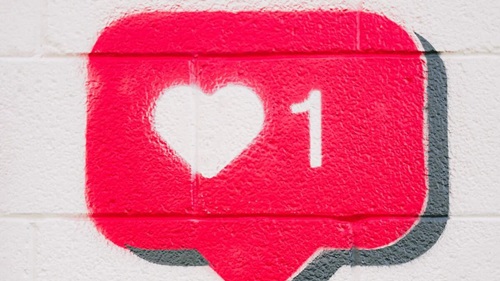
One of the most appealing aspects of social media for users is getting a “like” from fellow users and friends when one posts something. It is both an adrenalin rush and a feeling of validation. There is a sense of excitement that another user has noticed your social media content as well as their recognition that what you have posted is worthy of acknowledgment.
Recently, the popular photo and video-sharing application, Instagram, has started hiding the number of likes that each user’s post receives from everyone apart from the user. Facebook, which owns Instagram, has also dabbled in this practice. What this means is that the precise numerical value of each post’s popularity is no longer publicly displayed. Officially, the motivation behind this decision was to reduce the disparity in the number of likes that posts by popular users receive, especially “Instagram influencers” who post paid content to advertise certain brands and sponsors, from the regular user, whose average number of likes per post is tiny in comparison to these influencers. More generally, the intention is to restore a sense of consistency across all users, and to reduce the sense of shame that some users feel when they post something that receives a meager number of likes.
Is this change a positive or negative thing? The fact that individual users can still see the number of likes that each post receives might suggest that Instagram is trying to have its cake and eat it too. Furthermore, other users can still get a rough count of the number of likes that other users’ posts receive by manually counting them. For example, if a post turns out to be relatively overlooked, it would be a straightforward matter to count the precise number of likes that it received. Similarly, it isn’t difficult to estimate the number of likes that a popular post receives, based on how far down one has to scroll to see the total likes from top to bottom.
Perhaps this is beside the point, though. An individual user may still feel a sense of personal disappointment when their post doesn’t receive as many likes as they had expected, but at least this disappointment is no longer given a public numerical value for all to see. Ideally, this change would also have the effect of discouraging users from posting content with the goal of obtaining a large number of likes, while simultaneously encouraging them to post content that simply interests them instead.
The truth may lie somewhere in between, but at the very least, I would consider this change by Instagram to be a step in the right direction. The more democratic the use of social media can become, the more beneficial it can be for all concerned. In order to become more democratic, social media platforms must try to reduce the competitive element between users, and free them up to each do their own thing, regardless of how popular their content is in terms of the metric of social media likes.
Ming
Vocabulary
validate (verb) – to officially prove that something is true or correct
disparity (noun) – a difference between things
meager (adjective) – smaller or less than you want or need
have one’s cake and eat it too (idiom) – to have or enjoy the good parts of something without having or dealing with the bad parts
democratic (adjective) – the idea that all members have an equal right to be involved
ネイティブ講師と話すならこちら!
英語学習をフルサポート!
マンツーマン&コーチングの英会話教室



















